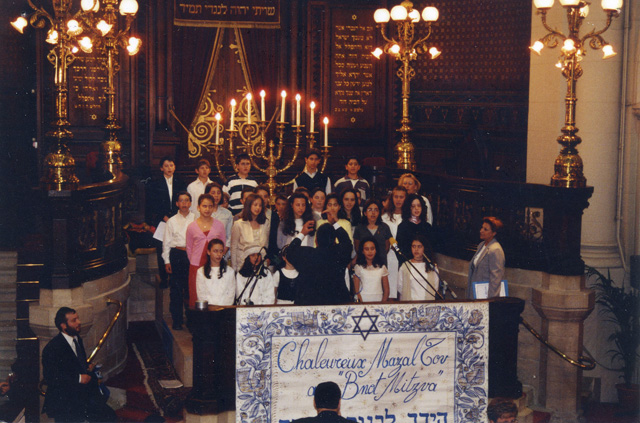'Today I Am a Woman' traces bat mitzvah tradition
Women and girls of 78 countries tell their stories
Shula Reinharz, the Jacob S. Potofsky Professor of Sociology, positively glows when she talks about her latest book, a just-published collection of bat mitzvah stories from around the world that she edited with fellow sociologist, Dr. Barbara Vinick.
No wonder. “Today I Am a Woman” is, after all, an expression of the Hadassah-Brandeis Institute founder’s mission in life – using research to push egalitarianism inside and outside the Jewish world and spreading awareness of the breadth, depth and continuing evolution of the international Jewish community.
But actually it is the stories that did not make it into the book that fire Reinharz’ determination as an advocate and her emotions about inequality.
The stories in the book are by and about girls and women in 78 countries who experienced the Jewish coming-of-age ritual that is bat mitzvah. The 32 stories that Reinharz and Vinick agreed to exclude, at the behest of their Indiana University Press editor, who wanted a book just about bat mitzvah, are those of people who were cheated of the experience. [Read the review in Tablet Magazine]
“The pain of some women who have not had a bat mitzvah is very apparent,” Reinharz says. She recalls her own contradictory experience, “doing everything as a kid in Junior Congregation, and then when I was bat mitzvah at age 13 and became a so-called adult Jewish woman, I wasn’t allowed to do anything” in the ritual conduct of adult services.
Reinharz did not hear a woman prayer leader until she came to Brandeis in the early 1980s. “I was shocked,” she recalls. “I called up Jehuda [President-emeritus Jehuda Reinharz Ph.D.’72] and said ‘Come quick, you’ve got to hear this.’”
For Jews, coming of age is marked by a young person’s beginning to observe the commandments of the Torah, including fasting on specified days, but “girls were kind of neglected” until relatively recently, Reinharz says. “They were just there to be pure and reproduce. No brit, for example. This whole bat mitzvah thing comes about when girls are being seen as full human beings. Being perceived as fully human, needing and deserving an education, is a modern thing. Feminism advocates for females to be perceived as fully human.”
The first bat mitzvah in the United States took place in the 1920s. Now, some form of the ceremony is de rigueur in most American Jewish communities. Coming-of-age rituals are increasingly popular among religious and non-religious people, Jews and non-Jews alike, as has been reported prominently in national media. Those whose culture does not provide such rituals are making them up; observances range from candle-lighting ceremonies to extravagant parties.
“Some people think, wrongly, that ‘this feminism stuff’ is bad for the Jews, that it destroys the family, overturns years of tradition and customs and challenges halacha [Jewish law],” Reinharz says. “There is nothing in halacha that says women can’t read from the Torah.”
She cites Jonathan Sarna, the Joseph H. and Belle R. Braun Professor of American Jewish History, as grouping feminism with the rebirth of the State of Israel and the Holocaust as the three main upheavals in the Jewish world in the 20th century. “Feminism has made and will continue to make a positive contribution to Jewish continuity,” Reinharz said, noting that some feminists now are working to develop a ceremony for girls for the eighth day after birth, the day on which male children are circumcised.
“We are living in revolutionary times,” Reinharz says. “That we are present at a moment of huge change is a privilege.
The Hadassah-Brandeis Institute, Mayyim Hayyim, the Jewish Women's Archive, Temple Reyim in Newton and the Synagogue Council of Massachusetts have planned a major outreach to bat mitzvah-age girls in greater Boston for the launch of the book.
The organizations have planned an afternoon of talk – including with some women whose stories are in the book – games, crafts and storytelling at Temple Reyim from 2 to 4 p.m. on Sunday, Nov. 20. There is an $18 charge and reservations are advised. [RSVP online] All are welcome, regardless of age or gender.
Categories: Humanities and Social Sciences







